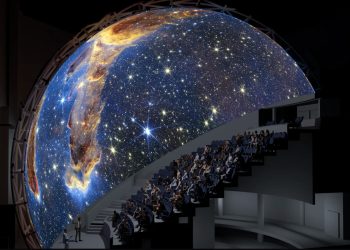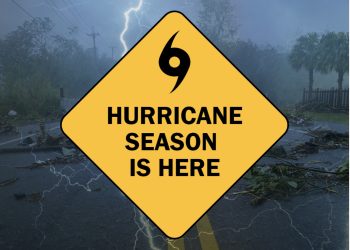Six planets—Mercury, Mars, Jupiter, Uranus, Neptune, and Saturn—all traveling more or less along the same ecliptic plane around the sun are set to align in the sky over the Earth in late August.
A mini planetary alignment is when any 3 planets appear to line up roughly in a straight line (which is never truly straight) in the sky, while a small planetary alignment is when any 4 planets are involved. What we have in store this month, on August 28, is a large planetary alignment, which consists of any 5 or 6 planets that appear to form up. A great, or full, planetary alignment is when 7 planets (sometimes including Pluto) all form a marvelous procession in the night sky together. So it seems we have a large alignment just up the bend.
Some people have poetically labeled the alignment of planets a “planetary parade.” The entourage of celestial bodies invites such a simile, yet it is misleading. Contrary to a certain popular belief, during a planetary alignment, or parade, the planets do not actually form a straight line in space like billiard balls cued up. Rather, a planetary alignment is defined as when several planets are grouped on one side of the sun.

This grouping on one side of the sun is often enough to give the appearance of a planet parade when seen from Earth. Although the planets will not line up in space like billiard balls, they all travel along, more or less, the same great celestial plane, or ecliptic, journeying around the sun. And so when we gaze up at the night sky, with our eyes we can trace that ecliptic as a great arc rising and falling from horizon to horizon, from east to west. Both the sun and the moon appear to traverse this great belt in the sky. As do all the planets. When several planets all happen to fall on one side of the sun, as in an alignment, we may trace the ecliptic and pick them out one by one. They may be near or far, staggered or straight, but will from Earth appear to form a straight line because they all lie along that great ecliptic plane.
On August 28, the planets will align in the order of: Mercury, Mars, Jupiter, Uranus, Neptune, and Saturn. About one hour before sunrise, sky gazers may pick them out with their naked eyes, although some of the planets will require the aid of binoculars to spot; Uranus and Neptune are farthest away and faintest, so optical aids will be needed to see them. Meanwhile, Mercury, found furthest east, will lie near the horizon where sunrise will soon begin and may be washed out by its glare, so don’t stare at it too long. All six will cluster within a sector narrower than 180 degrees. Of course, an unobstructed view with a clear horizon and little light pollution will aid your parade viewing enjoyment.
Other celestial bodies will throng in the periphery of the parade. Its closest spectator will be the waning crescent moon just northeast of Mars, near the constellation Gemini, while Mars itself will appear in Taurus, as will Jupiter and Uranus. Leo the Lion will lie behind Mercury, while Neptune will fall within Pisces and Saturn within Aquarius.
It seems this late August planetary alignment may be a warmup for something larger still to come. A few months down the road, on February 28, 2025, sky gazers now eagerly anticipate a great alignment involving 7 planets, in this order: Mars, Jupiter, Uranus, Venus, Neptune, Mercury, and Saturn. For now, though, the August weather seems ideal for quite a decent show of planets.
So grab your lawn chairs and find a spot before sunrise. A late summer parade among the great grove of stars is in store!






